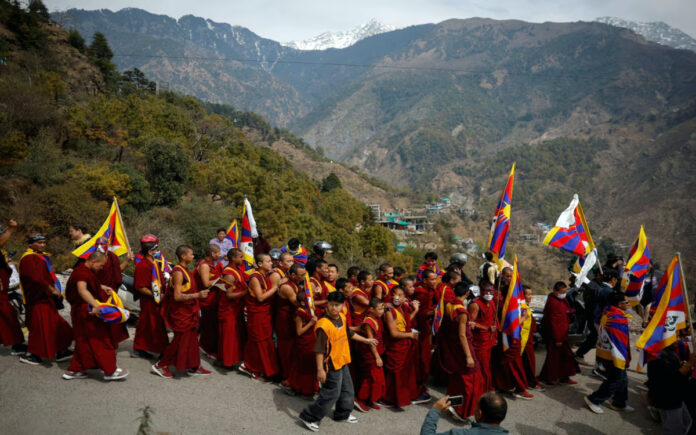Dharamshala: In a monastery nestled beneath the snow-capped mountains of northern India, the Buddhist monk entrusted with safeguarding the Dalai Lama and foretelling the future of his people voices concerns.
As the Dalai Lama celebrates his 89th birthday on Saturday, China insists on controlling the selection of his successor as Tibet’s spiritual leader, leaving the Chief State Oracle, known as the Nechung, contemplating what lies ahead.
“His Holiness is the fourteenth Dalai Lama, but there will be a fifteenth, sixteenth, seventeenth,” remarked the Nechung. “In other countries, leaders change and that’s the end of the story. But in Tibet, it works differently.”
Tibetan Buddhists believe in reincarnation, where learned monastics are reborn as newborns. Currently recuperating from a medical procedure in the United States, the Dalai Lama has indicated he will clarify succession matters, including the details of his reincarnation, around his 90th birthday. The Nechung will enter a trance as part of the identification process for the reincarnation.
Also Read | Dalai Lama Marks 89th Birthday with Health Update and Spiritual Reflections
A charismatic figure renowned for globalizing Buddhism and awarded the Nobel Peace Prize in 1989, the Dalai Lama advocates for a “Middle Way” seeking autonomy and religious freedom within China, a stance viewed by Beijing as separatist.
With concerns over a successor’s inexperience and global recognition, there are fears whether the Tibetan cause will maintain momentum or turn more radical amid heightened tensions between Beijing and Washington, traditional supporters of the Central Tibetan Administration, Tibet’s government-in-exile.
U.S. President Joe Biden is expected to sign legislation countering Chinese “disinformation” on Tibet’s historical status. “China wants recognition that Tibet has been part of China… throughout history,” noted Tibet specialist Robert Barnett.
The Dalai Lama’s office, deferring interviews to Sikyong Penpa Tsering, highlighted ongoing succession challenges. China, asserting control since annexing Tibet in 1951, has not engaged with the Dalai Lama’s representatives since 2010.
The Tibetan Youth Congress, while respecting the Dalai Lama’s Middle Way, represents a growing sentiment among young Tibetans aspiring for independence. Despite support for the Dalai Lama’s return to Tibet, uncertainties persist.
On Saturday, Buddhists worldwide will gather to celebrate and pray for the Dalai Lama’s long life and his people’s aspirations for a return to Tibet, underscoring the urgency surrounding both his legacy and the Tibetan cause.



